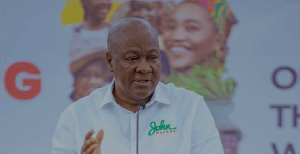This blog is managed by the content creator and not GhanaWeb, its affiliates, or employees. Advertising on this blog requires a minimum of GH₵50 a week. Contact the blog owner with any queries.
Zeqblog Blog of Saturday, 23 November 2024
Source: Okine Isaac

Ghanaian university professors have strongly opposed former President John Dramani Mahama’s plan to reexamine the Free Senior High School (SHS) program.
Concerns have been voiced by educators who are fighting to preserve the current Free SHS system on the possible repercussions of Mahama’s proposed changes. The Central, Upper East, and Upper West regions are the main targets of their activities.
The professors contend that Mahama’s proposal, which he characterizes as an improvement on the Free SHS policy, would fail to produce the quality gains that were promised. Rather, they argue that it runs the risk of encouraging elitism inside Ghana’s educational system.
The implementation of a tiered system where “Category A” institutions would charge higher tuition is a crucial component of Mahama’s proposal. According to the academics, these modifications would disproportionately impact students from low-income families, thereby erecting obstacles to fair access to high-quality education.
One of those opposing the plan is Dr. Frank Bannor, a development economist and lecturer at the Ghana Institute of Management and Public Administration (GIMPA). According to him, it is improbable that the suggested changes will improve every student’s educational experience.
Instead, by giving preference to privileged institutions over others, they may cause many people to become marginalized. He asserted that the tiered system might widen the gap between affluent and low-income households and worsen already-existing disparities.
The advocates also stress that, despite certain difficulties, the existing Free SHS policy has greatly increased secondary school access. They worry that putting some schools under financial strain would undo these advances and force a lot of children to pass up chances to improve their academic standing.
The lecturers also stress that in order to enhance results in all schools, educational reforms should concentrate on improving curriculum development, teacher preparation, and infrastructure. They emphasize the necessity of inclusive policies that improve the educational system without favoring any group of people over another.
Source: TV3 Ghana


